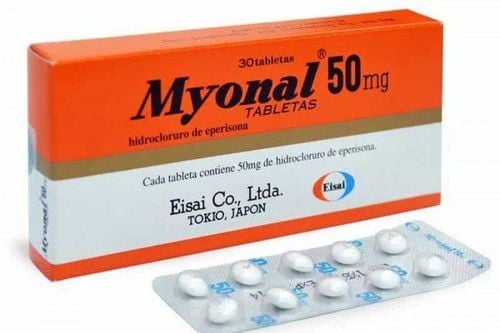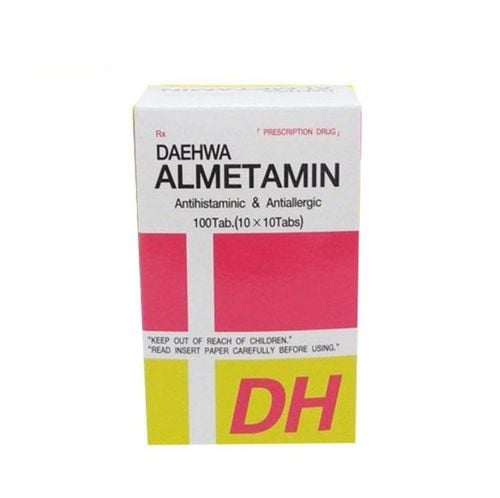An allergic reaction to pineapple can be triggered by eating small amounts of the fruit or drinking pineapple juice. You may even have an allergic reaction when you touch pineapple. Allergic reactions to fruit, including pineapple, are less common than allergies to other foods, but they can be serious when they occur. The following article helps provide you with the necessary information when you have a pineapple allergy.
1. What is pineapple allergy?
Allergic reaction to pineapple can be triggered by eating small amounts of fruit or drinking pineapple juice. You may even have an allergic reaction when you touch pineapple. Allergic reactions to fruit, including pineapple, are less common than allergies to other foods, but they can be serious when they occur.
The most common types of food allergies include:
- Nuts (tree nuts and peanuts)
- Wheat
- Milk
- Fish
- Soybeans
- Shellfish
- Egg
2. What are the symptoms?
You may have symptoms of allergy pineapple immediately after exposure to pineapple or it may take up to several hours for your first symptoms to appear. Severe itching and hives are often the first symptoms of an allergic reaction. Hives can appear in one or more places on your body.
You may also have digestive symptoms, including stomach pain, vomiting, and diarrhea. These digestive symptoms are your body's way of trying to eliminate allergens. In addition to digestive symptoms, pineapple allergy symptoms may include:
- Swelling of the face, tongue, throat and lips
- Shortness of breath
- Blushed face
- Severe itching or rash
- Constipation
- Sinus congestion
- Metallic taste in mouth
- Dizzy
- Faint
- Anaphylactic shock
Anaphylactic shock is a medical emergency. Seek medical help immediately if you have difficulty breathing or think you may be having anaphylactic shock. In a study from 1993, 20 out of 32 people who tested positive for pineapple allergy experienced anaphylaxis after eating the fruit.

3. What are the risk factors?
You are more likely to have a pineapple allergy if your relatives are allergic to pineapple. Close relatives include parents, siblings and grandparents.
This is an especially important note when introducing new foods to infants. According to the American Academy of Allergy, Asthma and Immunology (AAAAI), although it may seem counterintuitive, delaying introducing household allergens to children can actually increase risk of allergies.
Aim to introduce the most allergenic foods to 6-month-old infants. For infants with existing atopic dermatitis, siblings with peanut allergy, or previous allergic reactions, consult your doctor first.
Fruits, such as pineapple, may contain allergens found in other foods or substances. If you are allergic to pineapple, you may also be allergic to natural rubber latex. And, you may experience allergy symptoms when exposed to items made from it. Things made from natural rubber latex include:
- Hospital gloves
- Tape
- Sanitary napkin
- Crutches
- Blood pressure monitoring cuffs
- Condom
- Rubber clamping tool
- Rubber toys
- Toothbrush
People who are allergic to pineapple may also be allergic to birch or banana pollen, known as pollen allergy syndrome. Eating raw pineapple can lead to mouth or throat symptoms called oral allergy syndrome, rarely leading to anaphylactic shock.
Cooked pineapple is generally tolerated by people with oral allergies or pollen allergies. Raw pineapple also contains a protease enzyme called bromelain that can cause skin or lip irritation, but is not life-threatening.
4. Complications
The most serious complication from pineapple allergy is anaphylactic shock. Anaphylactic shock is a medical emergency and can be life-threatening. You should seek medical help immediately if you think you are experiencing anaphylactic shock. Symptoms include:
- Wheeze
- Heart arrhythmia
- Shortness of breath
- Swelling of the tongue, lips or throat
- Loss of consciousness
- Purple around the lips, fingertips or toes
If you have had anaphylactic shock before, your doctor may have prescribed an EpiPen. This is an auto-injected dose of epinephrine, which is one type adrenalin works quickly. It is used to reduce severe immune system reactions to allergens.
You should go to the emergency room immediately after using an EpiPen, even if your symptoms are significantly reduced or resolved due to the possibility of a second wave reaction unresponsive to epinephrine.
5. Foods need to be avoided
If you have a pineapple allergy, you should avoid both canned and fresh pineapple. You should also not drink pineapple juice if you are allergic to pineapple.
Pineapple can also hide in other foods. Some of these products include:
- Canned fruit salad or cocktail
- Pineapple salsa
- Pineapple rum
- Pineapple jam
- Fruit cake
- Banana bread
- Pineapple soda or soft drink
- Tropical punch
- Tropical alcoholic drinks, such as margaritas and piña coladas
- Fruit candy
Remember to check the ingredient labels on foods before purchasing to ensure they do not contain pineapple. Also, when you go out to eat at a restaurant, let the waiter know that you have a pineapple allergy. This will help you avoid accidental contact with the fruit.
Pineapple enzymes may also be an ingredient in skin care products, such as soaps and facial creams. You should always check the ingredient list and not use a product if you have any doubts about what is in it.

6. When to see your doctor
If you suspect you are allergic to pineapple, talk to your doctor. They may advise you to take one pill antihistamines over-the-counter medications to ease your symptoms, such as diphenhydramine (Benadryl).
If you ever have anaphylactic shock, your doctor will prescribe an EpiPen that you can use if you have symptoms of an allergic reaction.
If your symptoms do not improve or if they get worse, consider the situation as a medical emergency. Call your local emergency service or ask someone to drive you to the nearest hospital.
Food allergies can occur for the first time at any point in a person's life. In the United States, nearly 8 percent of children and 4 percent of adults have food allergies. You may have a more severe pineapple allergy if you develop it as a child, or it can appear at any time in your life.
Your doctor can confirm a pineapple allergy through a blood or skin test. And it's important to let them know exactly what happened. Your doctor may recommend that you avoid eating pineapple altogether, and they may also prescribe antihistamines or an EpiPen as a prevention.
Unless your doctor directs you otherwise, avoid pineapple and any products that may contain fruit. If you eliminate exposure to the fruit, you will not experience any symptoms.
7. Alternative foods
Pineapple can be refreshing and is vitamin C-rich, but so are many other fruits. Delicious substitutes for pineapple include:
- Apple
- Pear
- Grape
- Bell pepper
- Citrus fruits
- Mango
You can also use mango or apple juice instead of pineapple juice in many tropical concoctions. If you want to add sweetness to baked products or snacks, raisins, dates and cranberries dried are good substitutes.
Reference source: healthline.com
To arrange an appointment, please call HOTLINE or make your reservation directly HERE. You may also download the MyVinmec app to schedule appointments faster and manage your reservations more conveniently.








